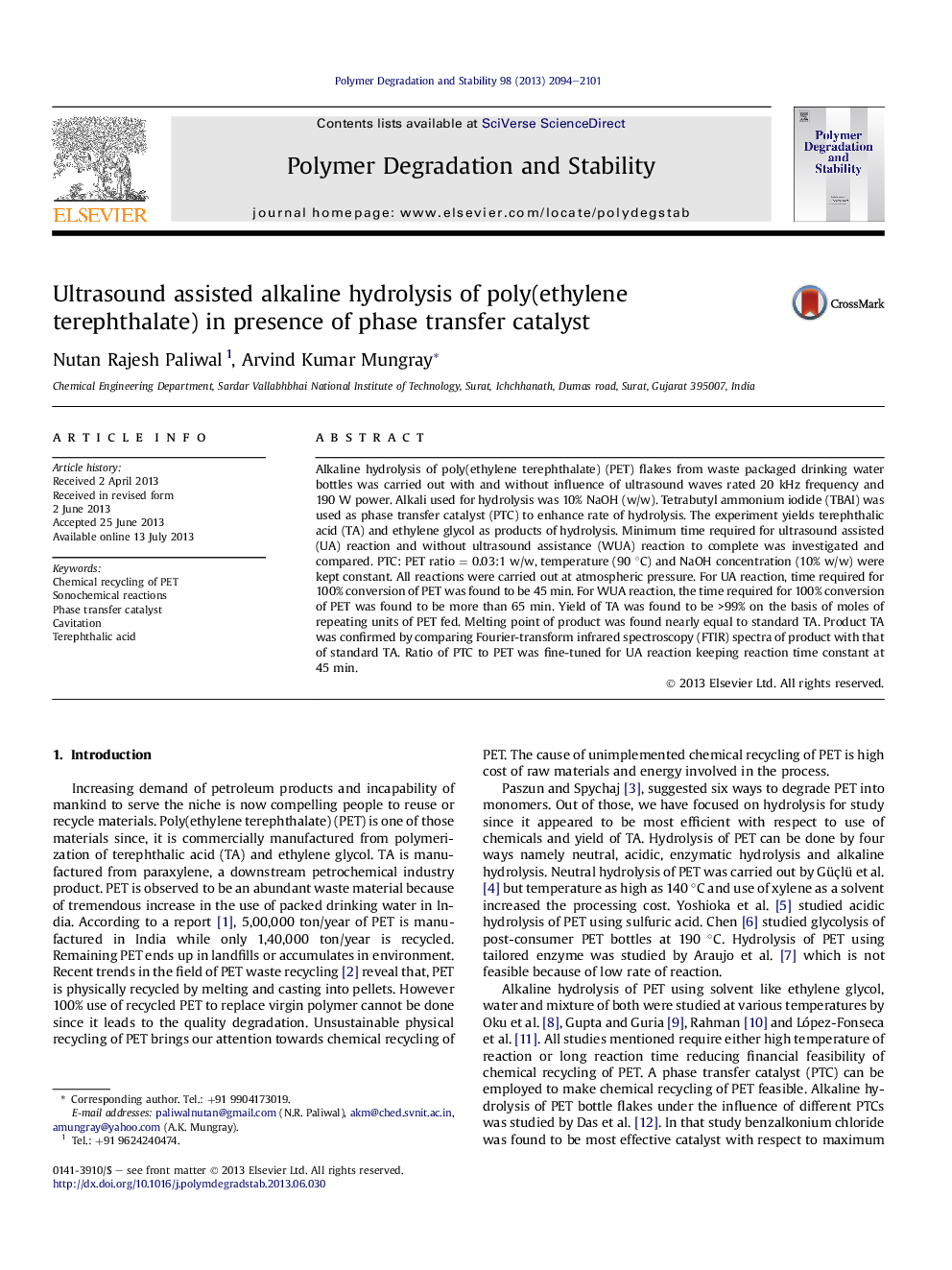| Article ID | Journal | Published Year | Pages | File Type |
|---|---|---|---|---|
| 5202074 | Polymer Degradation and Stability | 2013 | 8 Pages |
Abstract
Alkaline hydrolysis of poly(ethylene terephthalate) (PET) flakes from waste packaged drinking water bottles was carried out with and without influence of ultrasound waves rated 20 kHz frequency and 190 W power. Alkali used for hydrolysis was 10% NaOH (w/w). Tetrabutyl ammonium iodide (TBAI) was used as phase transfer catalyst (PTC) to enhance rate of hydrolysis. The experiment yields terephthalic acid (TA) and ethylene glycol as products of hydrolysis. Minimum time required for ultrasound assisted (UA) reaction and without ultrasound assistance (WUA) reaction to complete was investigated and compared. PTC: PET ratio = 0.03:1 w/w, temperature (90 °C) and NaOH concentration (10% w/w) were kept constant. All reactions were carried out at atmospheric pressure. For UA reaction, time required for 100% conversion of PET was found to be 45 min. For WUA reaction, the time required for 100% conversion of PET was found to be more than 65 min. Yield of TA was found to be >99% on the basis of moles of repeating units of PET fed. Melting point of product was found nearly equal to standard TA. Product TA was confirmed by comparing Fourier-transform infrared spectroscopy (FTIR) spectra of product with that of standard TA. Ratio of PTC to PET was fine-tuned for UA reaction keeping reaction time constant at 45 min.
Related Topics
Physical Sciences and Engineering
Chemistry
Organic Chemistry
Authors
Nutan Rajesh Paliwal, Arvind Kumar Mungray,
